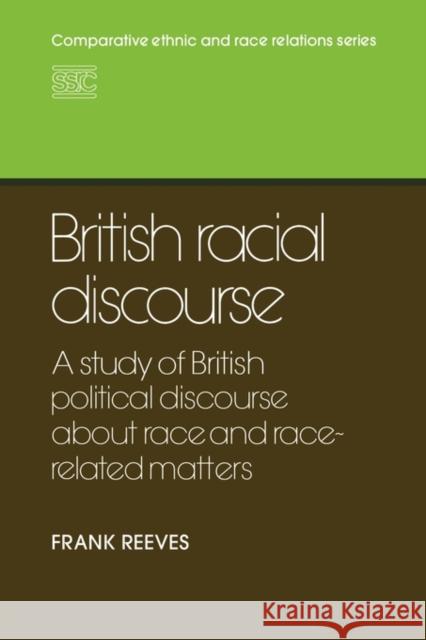British Racial Discourse: A Study of British Political Discourse about Race and Race-Related Matters » książka
British Racial Discourse: A Study of British Political Discourse about Race and Race-Related Matters
ISBN-13: 9780521124386 / Angielski / Miękka / 2009 / 296 str.
British Racial Discourse: A Study of British Political Discourse about Race and Race-Related Matters
ISBN-13: 9780521124386 / Angielski / Miękka / 2009 / 296 str.
(netto: 194,39 VAT: 5%)
Najniższa cena z 30 dni: 140,99
ok. 16-18 dni roboczych.
Darmowa dostawa!
This book, first published in 1983, examines why people prefer to talk about immigrants or ethnic minorities when they are referring to differences marked not by the migratory process of ethnicity, but by skin colour. How, without mentioning racial criteria, have politicians managed to introduce immigration controls deliberately aimed at reducing the number of black migrants? This book identifies a central feature of British political life: the ability to justify racially discriminatory behaviour without recourse to explicit racist language. It gives an account of British racial ideology as it is practically experienced in the form of political discourse and helps to provide a theoretical understanding of its relationship to the social structure as a whole and in particular its relationship to inter- and intra-class divisions. The author argues that traditional class-based ideologies are perfectly capable of supporting racially oppressive institutions and have far better 'protective' properties than expressions of overt racism. As a result, the objective structures of British race relations are obscured by a facade of 'deracialised ideology'.











